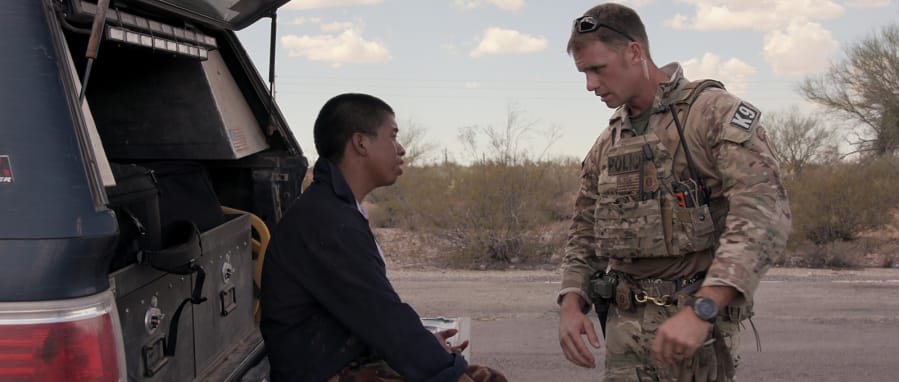Clusiau: And what was real access. I feel like because the agency’s so vast too, there’s a lot of ICE individuals who were ICE individuals under Obama, as they are (under) Trump, as they are (under) whatever the next administration is. I think they have a very large spectrum of opinions. And I think we were able to connect with individuals on that level because so many of them come from different backgrounds, different places and different tenures, and in the agency, once you kind of land with them and spend time in cars with them and drive for four hours because you’re going to some operation, you do find common ground. You start to really talk and realize that they are in a tough position under this administration to do their job.
It was quite a variety of individuals … I think there’s this perception that immigration just happens on the border. I think it was unique to be able to go to New York and North Carolina, Arizona, Texas to kind of show how each place, they’re up against different things. And I think that was something that was important to us, to dive in and understand where they were coming from in their place in the country.
Schwartz: People would ask us like, “Oh, my God, you’re spending time with them” depending on where you come from, it’s such a polarized issue. People are like, “Are they assholes? They must be the worst.” And the truth is, that’s not the ICE officers we met. There’s already controversy around our show, and I guess that’s too bad because the review process is completely different than the people we spent the years with. And yeah, like Christina said, we just found them in a very hard position as this issue got more and more heated and as orders came across.
I grew up in Israel and I served in the (Israeli Defense Forces), and now I can kind of be very open to say: I wasn’t for the occupation; I thought it was not the right thing. But I served in an army; that was its job. And as somebody who takes orders, you’re caught in a hard position. You’re just a soldier. And I think that is something that interested us, that we hope actually comes across in the show that is not throwing any side under the bus. I think people want us to say, “Oh, tell them that they’re so bad,” and “abolish ICE,” and this and that, or the other way around.



